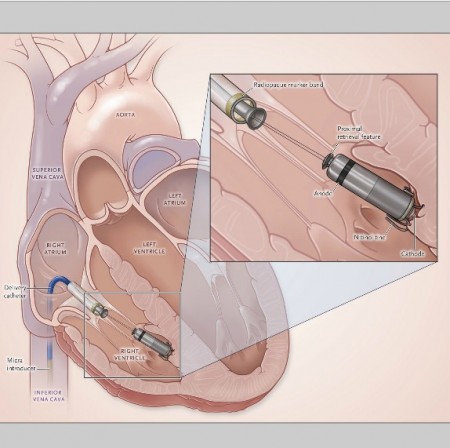November 21, 2015 – Back in December 2013 I posted a blog about the Micra TPS, the world’s smallest pacemaker. At the time the first successful human implant had been done in clinical trial in Linz, Austria, a place my wife and I visited this summer.
What I can now report is that 725 implants have been attempted with a 99.2% success rate. Of the 719 successes 96% experienced no major complications. Complications included cardiac injuries (1.6%), groin site problems (0.7%) and pacing issues (0.3%). In the 719 successful implants, 96% of recipients reported no major complications after 6 months.
The Micra TPS is 1/10th the size of conventional pacemakers. It has no leads or wires. It is delivered by catheter through an incision in the groin. The catheter is threaded into the femoral vein and then positioned to place the pacemaker in the right ventricle of the heart. With no surgery there are far fewer potential complications. In the New England Journal of Medicine article reporting the results of the clinical trial, complications were 51% less when compared to conventional pacemaker procedures.
For the more than 600,000 worldwide who require cardiac pacemakers every year, this is game changing technology. And for the more than 3 million living with a cardiac pacemaker, it means a very different future experience when they next need to replace their existing technology.









